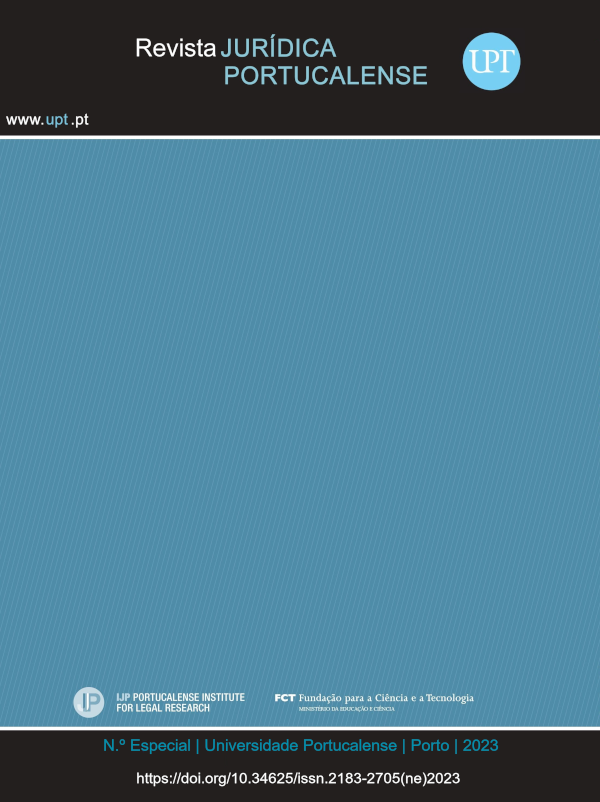Contributions to the interpretation of Article 1791 of the Portuguese Civil Code - the loss of benefits in the event of divorce and separation of persons and property
Keywords:
Marriage; divorce; separation of persons and assets; patrimonial consequences; expiration of donations; loss of benefits.Abstract
This article seeks to address some apparent imprecision on the subject, aiming to shed light on the loss of benefits provided for in Article 1791 of the Civil Code in cases of divorce or separation of persons and assets, in light of the letter and spirit of the legal regime of divorce resulting from the 2008 reform. Specifically, it seeks to clarify that benefits may also include donations and that Article 1791 does not cover all donations and does not intend to establish automatic expiration. Instead, without an agreement between the parties, it requires the allegation and proof that such benefits were based on the "consideration of the married state."
References
Araújo Dias, Cristina. Uma Análise do Novo Regime Jurídico do Divórcio. 2.ª Edição. Coimbra: Almedina; 2009.
Dias Costa, Eva. Da Relevância da Culpa nos Efeitos Patrimoniais do Divórcio. Coimbra: Almedina; 2005.
Dias Costa, Eva. “A Eliminação do Divórcio Litigioso por Violação Culposa dos Deveres Conjugais”. E Foram Felizes para Sempre? Uma Análise Crítica do Novo Regime Jurídico do Divórcio. Sottomayor, Maria Clara (Coord.). Wolters Kluver/Coimbra Editora; 2010. pp. 53–80.
Dias Costa, Eva. “Fracturas do Direito Matrimonial Português Contemporâneo”. Direito em Dia. 29.07.2019; disponível em https://www.direitoemdia.pt/magazine/show/63
Duarte Pinheiro, Jorge. O Direito da Família Contemporâneo. Reimp. da 4.ª Edição. Lisboa: Associação Académica da Faculdade de Direito de Lisboa; 2015.
França Pitão, José António de. A Posição do Cônjuge Sobrevivo no Actual Direito Sucessório Português. Coimbra: Almedina; 2006 e Dias Costa, Eva. “A posição sucessória do cônjuge sobrevivo no Direito Português: a propósito da Lei 48/2018, de 14 de Agosto”. Direito em Dia. 2019; disponível em https://www.direitoemdia.pt/magazine/show/55.
Gomes da Silva, Nuno Espinosa. História do Casamento em Portugal. Um Esboço. Lisboa: Universidade Católica Editora; 2013.
Hörster, Heinrich Ewald. “A Responsabilidade Civil entre os Cônjuges”. E Foram Felizes para Sempre? Uma Análise Crítica do Novo Regime Jurídico do Divórcio. Sottomayor, Maria Clara (Coord.). Wolters Kluver/Coimbra Editora; 2010. pp. 91–112.
Leite de Campos, Diogo. Martinez de Campos, Mónica. Lições de Direito da Família. Coimbra. Almedina, 2022 (Reimpressão da Edição de 2020).
Lobo Xavier, Rita. Recentes Alterações ao Regime Jurídico do Divórcio e das Responsabilidades Parentais. Coimbra: Almedina; 2009.
Pinto de Mesquita, António. Observações sobre a Reforma do Código Civil [Internet]. Coimbra Editora; 1934; disponível em https://www.fd.unl.pt/Anexos/Investigacao/1299.pdf
Teixeira Pedro, Rute. Anotação ao artigo 1729.º, 1766.º, 1791.º, Código Civil Anotado, Almedina, Coimbra, 2020.
Downloads
Published
How to Cite
Issue
Section
License
Copyright (c) 2023 Revista Jurídica Portucalense

This work is licensed under a Creative Commons Attribution 4.0 International License.
Authors who published in the journal agree to the following terms:
- The Authors grant the Journal the right of first publication, and other non-exclusive publishing rights, licensed under the Creative Commons Attribution License which allows the sharing of work with recognition of its initial publication in this journal.
- Authors are able to take on additional contracts separately, non-exclusive distribution of the version of the paper published in this journal (ex .: publish in an institutional repository or as a chapter in a book), with an acknowledgement of its initial publication in this journal.
- Authors are permitted and encouraged to post and distribute their work online (eg .: in institutional repositories or on their website) at any point before or during the submission process, as it can lead to productive exchanges, as well as increase the impact and the citation of published work (See The Effect of Open Access).
RJP does not apply submission, publication or any other fees of any nature. Its articles are open access, with the goal of disseminating scientific knowledge and the debate of legal topics in the area of Legal Sciences.






